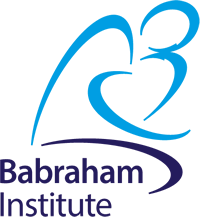About the Project
Autophagy is a catabolic process aimed at recycling cellular components in response to diverse conditions of stress, such as nutrient deprivation, viral infection and genotoxic stress, as well as growth factor and hormone signals (http://www.nobelprize.org/nobel_prizes/medicine/laureates/2016/press.html). It is thought to play an important role in protecting cells against senescence, clearing defective organelles and misfolded proteins. Furthermore, autophagy has been shown to be involved in cell reprogramming processes, including the generation of stem cells. Autophagy is performed by specialised vesicles, called autophagosomes, which engulf part of the cytoplasm and bring it to the lysosomes. The formation of autophagosomes from specific regions of the endoplasmic reticulum is a tightly regulated multi-step process. Downstream of a complex pathway sensing stress and nutrients, several protein complexes are sequentially recruited to initiate, elongate and fill the vesicles. Understanding the dynamics of this process requires mathematical modelling, anchored by accurate measurements.
We are looking for a smart and motivated student to investigate the dynamics of the formation of autophagosomes. They will use a mix of experimental and computational approaches, including molecular biology, live cell microscopy, data analysis and mathematical modelling. The student, registered with the University of Cambridge, will work at the Babraham Institute with the groups of Nicolas Le Novère, a senior computational biologist and Nicholas Ktistakis, a recognised expert on autophagy, in collaboration with Sara-Jane Dunn from Microsoft Research. They will study the formation of autophagosomes in cell culture, and the effect of genetic and pharmacological perturbations. The modelling methods developed at Microsoft Research to study interaction networks, most recently in the context of cellular reprogramming, will be extended to model the signalling network regulating autophagy and its impact on the pluripotency network. Quantitative dynamic recordings will be used to build and assess mathematical models reproducing the initiation, elongation and budding of autophagosomes. The feasibility of using machine learning methods to improve the treatment of imaging data will be explored. The outcome of the mechanistic mathematical models will be validated using genetic and chemical perturbations.
For more information about the research of Nicolas Le Novère and Nicholas Ktistakis, please visit
http://lenoverelab.org and http://www.babraham.ac.uk/our-research/signalling/nicholas-ktistakis
References
Karanasios E, Walker SA, Okkenhaug H, Manifava M, Hummel E, Zimmermann H, Ahmed Q, Domart MC, Collinson L, Ktistakis NT.
Autophagy initiation by ULK complex assembly on ER tubulovesicular regions marked by ATG9 vesicles. Nat Commun. (2016) 7:12420.
Le Novère N. Quantitative and logic modelling of gene and molecular networks. Nat Rev Genet (2015) 16: 146–158.
Dunn SJ, Martello G, Yordanov B, Emmott S, Smith AG. Defining an essential transcription factor program for naïve pluripotency. Science (2014) 344(6188):1156-60.

 Continue with Facebook
Continue with Facebook

